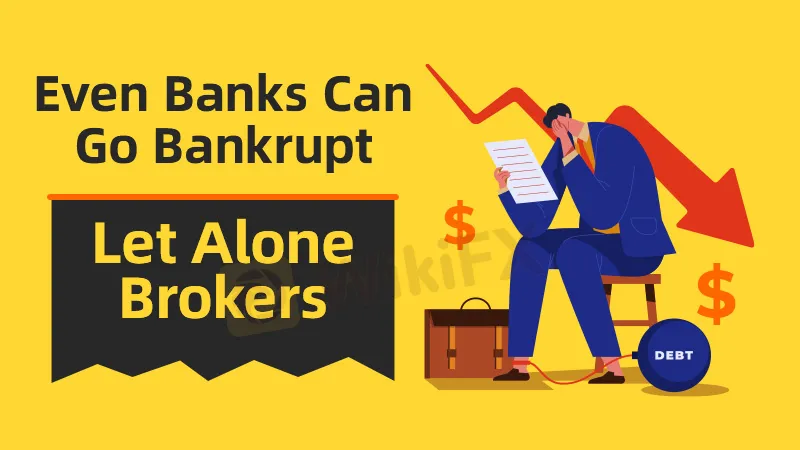Even Banks Can Go Bankrupt, Let Alone Brokers
abstrak:If banks can go bankrupt, what about online brokers, particularly those that are not officially regulated by the government and may not even have a physical office?

In the financial world, stability is often taken for granted. Many assume that large institutions, especially banks, are invincible. However, history has shown us that even banks can face bankruptcy, leaving a trail of financial ruin. This stark reality raises an even more pressing question: If banks can go bankrupt, what about online brokers, particularly those that are not officially regulated by the government and may not even have a physical office?
Banks, with their vast resources and regulatory oversight, have collapsed in the past, leaving customers in disarray. The 2008 financial crisis is a prime example, where several big-name banks either failed or required government bailouts. This crisis highlighted that no institution is too big to fail.
Online brokers, on the other hand, often operate with less oversight and fewer resources. Many are not officially regulated by any governmental body, making them significantly riskier for traders. The absence of a physical office can also be a red flag, indicating that the broker might disappear without a trace if things go south.
For traders, the allure of quick profits can sometimes overshadow the necessity of due diligence. However, neglecting to thoroughly evaluate an online broker can result in severe consequences. It's crucial to watch for key red flags that may indicate potential issues.

One major red flag is the lack of regulation. It is essential to ensure that the broker is regulated by a reputable financial authority. Regulation provides a layer of security and accountability, and brokers operating without it pose a significant risk to traders. Without regulatory oversight, there is no assurance that the broker adheres to industry standards or ethical practices.
Another important factor is the presence of a physical address. A credible broker should have a verifiable physical office. Brokers operating solely online, without a physical location, can easily disappear, making it difficult for traders to seek recourse in case of issues. The lack of a physical address can also be a sign of a fly-by-night operation, which is a significant red flag.
Unrealistic promises are another indicator of potential problems. Brokers that offer guaranteed returns or exceptionally high profits with minimal risk should be approached with caution. In the world of trading, there are no guarantees, and high returns usually come with high risk. Promises of easy and risk-free profits are often too good to be true and should raise immediate concern.
Customer reviews provide valuable insights into a broker's reputation and reliability. Negative reviews and complaints from other users can reveal underlying issues that may not be immediately apparent. It is important to research what other traders are saying about the broker. Consistent complaints about withdrawal issues, poor customer service, or unethical practices are significant red flags.
Transparency is crucial in choosing a broker. Brokers should be clear about their fees, policies, and terms of service. If this information is difficult to find or unclear, it is a warning sign. Lack of transparency can lead to unexpected costs and unfavourable trading conditions. A trustworthy broker will provide all necessary information upfront, ensuring that traders are fully informed before making any commitments.

WikiFX is a leading global forex broker regulatory query platform designed to empower traders with critical information about forex brokers. By providing comprehensive data on regulatory status, customer reviews, broker backgrounds, and potential risks, WikiFX serves as an invaluable tool for ensuring safe and informed trading decisions. With the WikiFX mobile application, traders can effortlessly verify the legitimacy of brokers, identify red flags, and access detailed profiles, all aimed at safeguarding their investments in the dynamic and often unpredictable forex market.
The collapse of even the most established banks serves as a reminder that financial stability is never guaranteed. For traders, this underscores the importance of conducting thorough due diligence when choosing an online broker. By avoiding brokers with red flags and utilizing resources like the WikiFX app, traders can protect their investments and trade with greater peace of mind.
In the volatile world of trading, being informed and cautious is your best defence against financial loss. Remember, if banks can go bankrupt, so can online brokers—especially those operating under the radar. Stay vigilant, and always prioritize safety over the allure of quick gains.

Broker ng WikiFX
Exchange Rate
